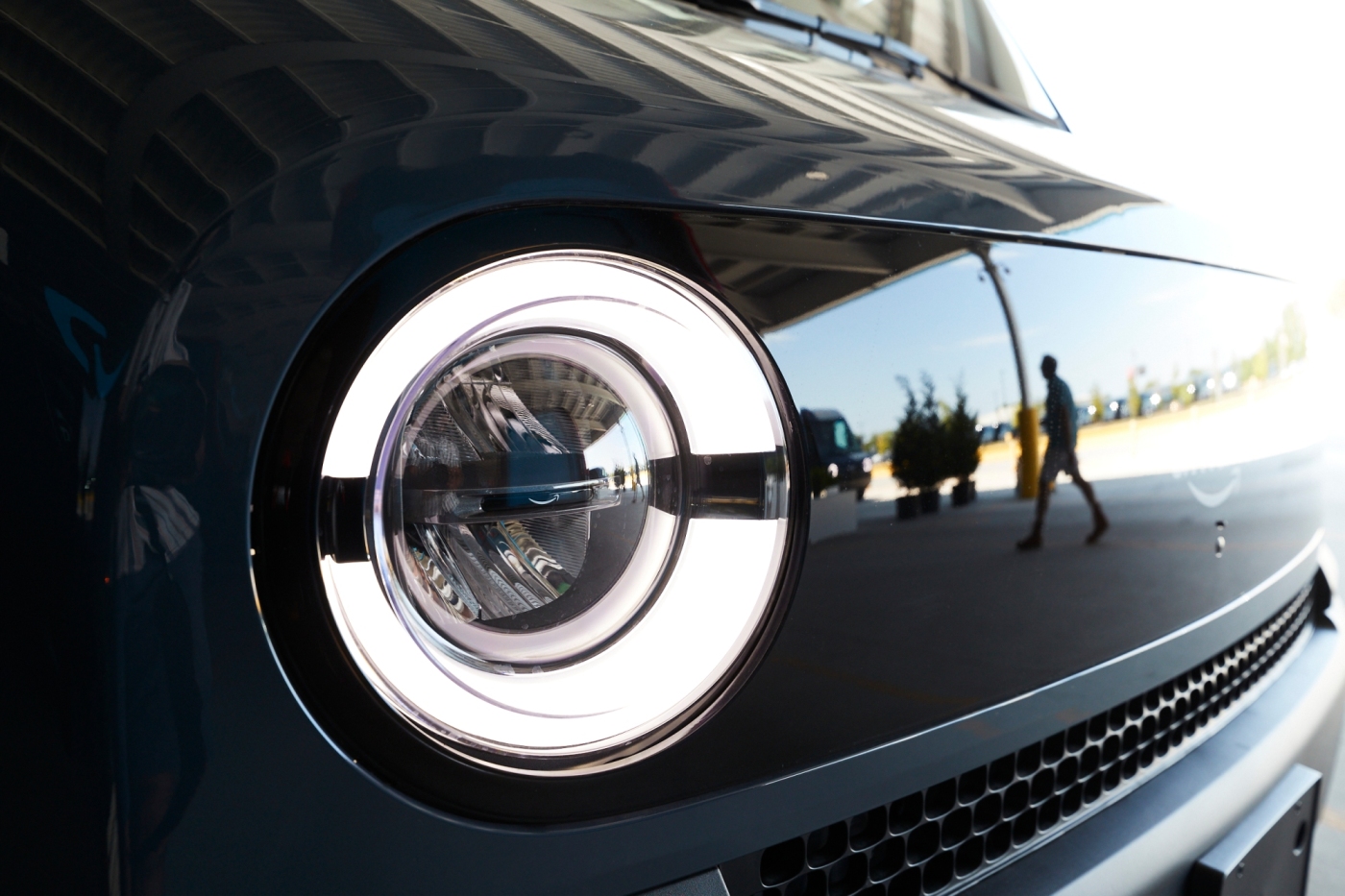By William Wilkes | Bloomberg
Irvine-based Rivian Automotive and Mercedes-Benz AG are partnering to jointly build electric vans in Europe, a potential win-win for an established manufacturer wanting to share costs and an inexperienced company struggling to scale up.
The two will invest in and operate a new assembly plant at an existing Mercedes facility in central or eastern Europe that will begin production in “a few years,” according to a statement. The companies didn’t release details including investment figures.
“We will both benefit significantly from this joint venture,” Mathias Geisen, who heads Mercedes’s vans business, told reporters, adding the move would help the partners shoulder the multibillion-euro cost of scaling up electric-van manufacturing.
Automakers are increasingly looking to share the bill of developing and producing EVs as they retool factories and overhaul model lineups to catch up with Tesla Inc. The partnership pairs Rivian, which counts Amazon.com and Ford Motor Co. among its largest shareholders, with one of the world’s most seasoned vehicle makers.
Rivian rose as much as 9.6% in New York. The shares are still down some 65% this year. Mercedes declined 2.6% as of 3:45 p.m. in Frankfurt.
Related links
Rivian subcontractors to pay $315,000 in back wages to Mexican laborers
Irvine’s Rivian leads EV slump as investors shun the money-losing startup
Why so many supercars in California have Montana license plates
Rivian cutting 6% of workforce as CEO cites volatile economy
Amazon wants 100,000 electric vans. Can Irvine-based Rivian deliver?
The Mercedes plant in Kecskemet, Hungary, is likely to be on the shortlist for the joint factory. The plant, which opened in 2012, makes entry Mercedes-Benz cars such as A-Class, B-Class and C-Class models. The manufacturer plans to lower the production of such vehicles as part of its strategy of shifting to higher-end models.
After its blockbuster debut in late 2021, Rivian has struggled with production woes, high costs and economic volatility. The company briefly halted work at its Normal, Illinois, plant at the beginning of this year for fixes and process improvements aimed at helping increase output.
Lingering supply-chain issues and elevated raw-material expenses have disrupted operations, leading Rivian recently to trim its full-year earnings expectations. It said last month that boosting production remains its primary focus, though supply-chain constraints would be the limiting factor. The startup has been looking at options for a manufacturing site in Europe since early last year, Bloomberg has reported.
Mercedes delivered just over 334,000 vans last year. Rivian, which makes the R1T pickup and R1S sport utility vehicle along with the vans, expects to manufacture 25,000 EVs this year.
Related Articles
Tesla’s ‘full self-driving’ isn’t worth $15,000, say many who bought it
LG, Honda to build US plant to make electric-vehicle batteries
Rivian subcontractors to pay $315,000 in back wages to Mexican laborers
Irvine’s Rivian leads EV slump as investors shun the money-losing startup
Here’s why most electric vehicles won’t qualify for $7,500 federal tax credit
Rivian has agreed to supply 100,000 electric delivery vans to Amazon by 2030. The tech giant also currently uses combustion-engine vans from Mercedes and other manufacturers.
Mercedes also said that it plans to adapt its European production network for large vans as the cost pressures from making battery vehicles undermine competitiveness. This will see an established plant from the Mercedes production network in eastern Europe — where production costs are lower — become part of van-making operations. Discussions on the plan between management and employee representatives in Germany will start shortly, according to a separate statement.
By the middle of this decade, all new Mercedes van models, including mid-size and small vans, will be electric-only, the company said.




